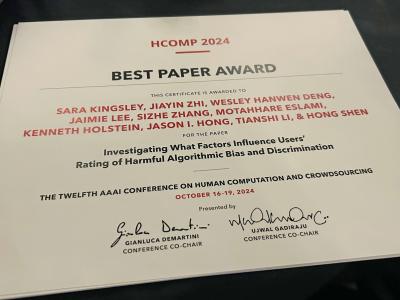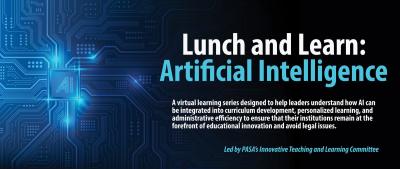Human-Centered AI
Artificial Intelligence (AI) brings amazing capabilities and challenging risks. Human-centered AI (HAI) works to maximize AI’s benefits and minimize its harms by attending to AI capabilities and their impact on users, service providers, impacted stakeholders, and society at large. This area of research:
- Improves AI innovation processes to reduce project failure and bad outcomes
- Creates new methods for people to interact with computing systems
- Advances AI Literacy
- Informs policy and the regulation of AI systems
- Improves how innovators can team with AI to co-innovate
Machine Learning (ML) is a subset of artificial intelligence (AI) that involves training algorithms to learn from and make predictions or decisions based on data. Applied ML in the context of HAI focuses on designing AI systems with human needs, behaviors, and social contexts in mind.
Students who want to learn more about HAI might be interested in the following HCII courses:
- 05-317/05-617: Design of AI Products and Services
- 05-318/05-618: Human-AI Interaction
- 05-380/05-685: Prototyping Algorithmic Experiences (PAX)
- 05-499/05-899: Special Topics: Augmenting Intelligence
- 05-499/05-899: Special Topics: Fairness, Accountability, Transparency, & Ethics (FATE) in Sociotechnical Systems
Faculty Researchers

Accessing Recipe Information Without Looking
NEWSSCS researchers interviewed home cooks who are either totally or legally blind and cooking instructors at a vision rehabilitation center to better understand how people with low or no visi...

SCS Research Highlights Kids' Role in AI
NEWSSCS faculty members recently hosted a series of workshops for middle and high school students to understand how young kids use generative AI tools.Seated at a laptop and surrounded by othe...

Future AR/VR Controllers Could Be the Palm of Your Hand
NEWSA new tool from researchers in CMU's Human-Computer Interaction Institute could put control for AR/VR environments in the palm of your hand.The new generation of augmented and virtual real...

PrISM: Procedural Interaction from Sensing Module
PROJECTThere are numerous complex tasks in everyday life, from cooking to medical self-care, that involve a series of atomic steps. Properly executing these step...

HCII at HCOMP 2024
NEWS"Responsible Crowd Work for Better Artificial Intelligence (AI)” was the theme of the 12th annual AAAI Conference on Human Computation and Crowdsourcing (HCOMP) hosted here in Pittsburgh f...
HCII Highlights in The Link
NEWSThe Link magazine from the CMU School of Computer Science is now available in mailboxes of alumni and friends, on newsstands in SCS campus buildings, and online. ...

NIST Awards $6M to Carnegie Mellon University To Establish AI Cooperative Research Center
NEWSU.S. Secretary of Commerce Gina Raimondo announced Sept. 24 that the Department of Commerce’s National Institute of Standards and Technology (NIST) has awarded $6 million to Carnegie Mello...

CMU Technologists Look to a More Inclusive Future
NEWSThe HCII's William Agnew and Jordan Taylor are just two of the CMU researchers working to ensure that the outputs of large language models represent the communities they reference.As artif...

People With Autism Turn to ChatGPT for Advice on Workplace Issues
NEWSA new study shows that many people with autism embrace ChatGPT and similar AI tools for help and advice as they confront problems in their workplaces. But does that use of AI make sense?Im...

CMU at CHI 2024
NEWSResearchers from the Human-Computer Interaction Institute (HCII) and several other Carnegie Mellon University schools and disciplines contributed to more than 40 papers accepted to the 202...

CMU Faculty and Staff Present at PASA Lunch and Learn
NEWSOn Tuesday, March 5, Ken Koedinger, Erin Gatz, and Nesra Yannier shared the exciting work they’ve been doing in the field of Artificial Intelligence in education during the Pennsylvania As...

Jigsaw: Supporting Designers to Prototype Multimodal Applications by Assembling AI Foundation Models
PROJECTRecent advancements in AI foundation models have made it possible for them to be utilized off-the-shelf for creative tasks, including ideating design conc...

